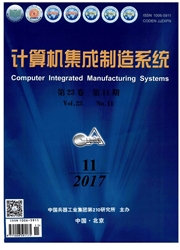

 中文摘要:
中文摘要:
在单位产品运输成本对批量敏感时,为了使订货商的最佳订货批量与供应商的最佳生产批量趋同,建立了供应链中不同主体在产品运输时,供、需双方在分散决策和集中决策情形下的最佳批量模型。研究表明,首先,在供应商负责产品运输时,运输能力柔性越强,其最佳生产批量越小,从而与订货商要求的短周期、小批量的订货更趋近;其次,订货商负责产品运输时,其最佳订货批量与供应商的最佳生产批量更趋一致,从而供、需方可以在双赢的前提下使整个供应链的利益更优。
 英文摘要:
英文摘要:
Considering that the freight cost of unit product is sensitive to lot-sizing, the optimal lot-sizing models both with decentralized decision and integrated decision based on channel partners for different products transportation sponsors were constructed to coordinate the optimal ordering lot-sizing of a purchaser with the optimal manufacturing lot-sizing of a supplier in a supply chain. Study indicated that the more flexible the transportation capacity was, the smaller the optimal manufacturing lot-sizing was, which was in accordance with the short ordering lead time and few lot-sizing that were claimed by the purchaser. Also, it showed that the optimal ordering lot-sizing was closer to the optimal manufacturing lot sizing when products deliverer was the purchaser, so that it might benefit the whole supply chain since the supplier and the purchaser could obtain a win-win solution.
 同期刊论文项目
同期刊论文项目
 同项目期刊论文
同项目期刊论文
 期刊信息
期刊信息
